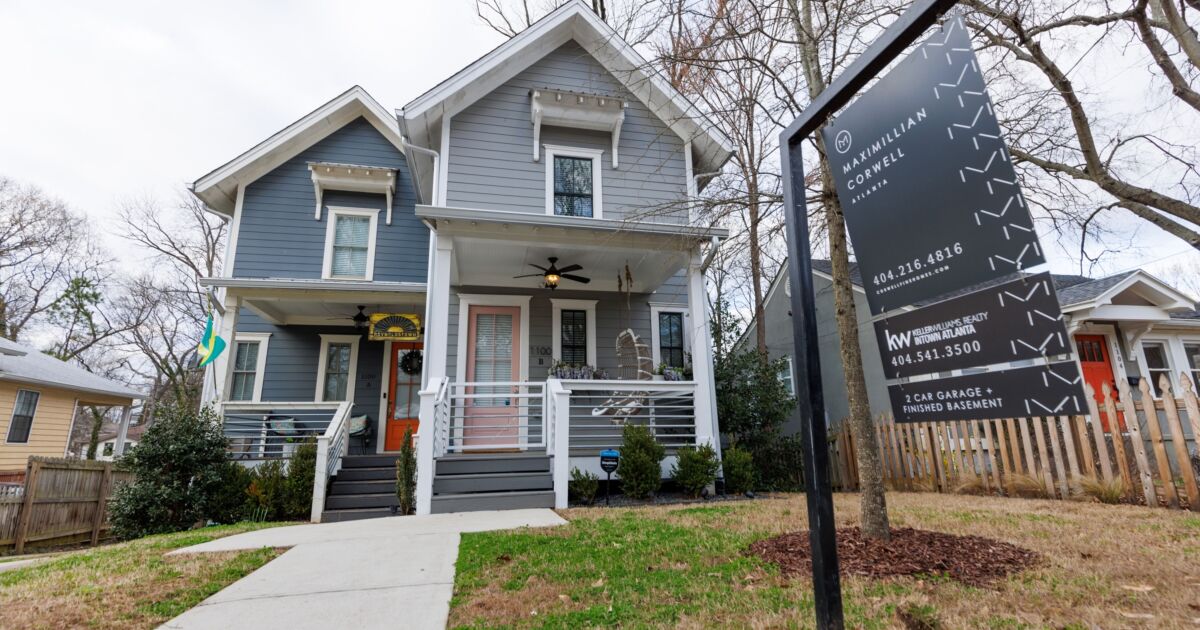
Consumers are giving mixed messages on how they feel about the current home purchase market and this is likely feeding into the Spring season, a Bank of America report found.
Among current homeowners and prospective buyers, 60% claim they are unable to tell whether now is a good time to purchase a home or not. The date comes from its Homebuyer Insights Report, a survey of 2,000 people, split evenly between the two groups and conducted between March 20 and April 22.
This compares with 57% in last year's study and 48% in the 2023 report. The Fannie Mae Home Purchase Sentiment Index for April released on May 7 had 77% of consumers declaring it was a bad time to buy, with 23% saying it was a good time, unchanged from March. But 58% said it was a good time to sell, down from 64% in April.
Why mortgage lenders should remain optimistic
The good news for lenders is that among prospective homebuyers surveyed by B of A, 52% said the market is better in 2025 than it was one year prior.
In the 2024 study, 48% affirmatively answered the question if the market is better than one year prior, while in 2023, it was 38%.
Furthermore, three-quarters of this group say they
"With so many factors impacting the homebuying market, prospective buyers and current homeowners are left wondering what it all means for them," said Matt Vernon, head of consumer lending at Bank of America in a press release. "As our research shows, a majority of buyers feel the market is headed in the right direction, but many are still planning to wait for more favorable conditions before they decide to take action."
The findings among consumers echo the sense of the industry during the recent Mortgage Bankers Association Secondary and Capital Markets Conference.
During his discussion about
Why potential buyers are waiting on homeownership
Among those that delayed their home purchase, 63% are waiting for lower prices; 50% are looking for rates to decline; while 38% want to increase their savings or income.
But Americans in general are feeling less confident about their financial outlook than they did one year ago, the May WalletHub Economic Index found.
The drop of 27% is the sharpest since December 2020, WalletHub in part attributed the magnitude of the decline to May 2024 being the most optimistic month for consumers when it comes to their financial outlook.
Specifically, when it comes to real estate, interest in buying a home fell by nearly 30% year-over-year, the largest decrease since December 2020, WalletHub noted.
"People who have low financial confidence are likely to spend less money,
How Gen Z is looking at buying a home in 2025
Meanwhile, when looking specifically at Gen Z homebuyers and/or prospective owners, the Bank of America survey results show they have, or are willing to, make a financial stretch to achieve this goal.
The share of Gen Z homeowners who took an extra job in order to obtain a down payment increased to 30% in this year's survey, from 28% in 2024 and 24% in 2023.
Meanwhile, among those looking to become homeowners, 21% of Gen Z said they plan to get their down payment using a loan from their parents or other family members, versus 15% of the general population at large.
Among all potential buyers,
"Even with the challenges they face, younger generations still understand the long-term value owning a home offers them and many are doing what it takes to get there," said Vernon. "They are finding creative ways to afford down payments and working hard to improve their financial futures."
However, another sign of the financial challenges around homeownership faced by Gen Z and millennials is that 92% commented they do not live in their ideal area, versus 64% of baby boomers.
What type of home Gen Z is able to buy
Given the financials involved with acquiring a home, Gen Z is more likely to have bought a fixer-upper and given the maintenance costs, as well as being more likely to be a do-it-yourself owner, is also the ones with highest rate of buyer's remorse, a survey from This Old House found.
More than two-thirds, 69%, said they had regrets surrounding their home projects, including underestimating routine maintenance at 26%; buying a property which was too old, 21%; or not budgeting for unexpected repairs.
The This Old House survey found that Gen Z is the most likely to take on debt to pay for upkeep, at 39%. They are also the ones to
Still, over three-quarters of Gen Z homeowners plan to remain in their current home long-term and more than half said they still recommend becoming a homeowner.
This Old House surveyed 2,000 homeowners across all generations to gain insights and outlook on repairs, maintenance and remodeling on Feb. 10 and 11.



